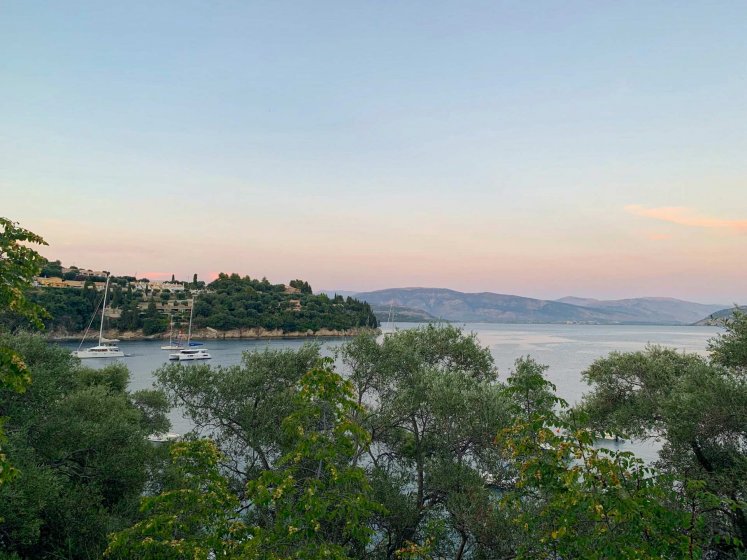Welcome, fellow enthusiasts of Hellenic history, to the captivating tale of Corfu! Nestled in the shimmering embrace of the Ionian Sea, this enchanting island has a history as rich and vibrant as its lush landscapes and azure waters.
Our journey begins in the mists of time, where myth intertwines with reality. Legend has it that Corfu emerged from the turbulent waves as Poseidon’s love offering to his wife, the beautiful nymph Korkyra. Hence, the island’s name, Korkyra, was born, echoing the romantic whims of the gods themselves.
Corfu’s history truly unfurls when the feet of mortals tread upon its soil. In antiquity, it became a melting pot of cultures, as Phoenicians, Corinthians, and other seafaring wanderers left their indelible marks. However, it was the ancient Greeks who wove the most enduring threads into Corfu’s historical tapestry.
In the 8th century BCE, the city-state of Corcyra (as it came to be known) blossomed into a maritime powerhouse. Fierce warriors and skilled sailors, the Corcyreans ventured fearlessly across the Mediterranean, forging trade routes. Their mastery of the seas brought wealth, prosperity, and the echoes of distant lands to the island’s shores.
But the echoes of greatness are often accompanied by the cacophony of conflict. Corcyra found itself embroiled in the Peloponnesian War, torn between allegiance to Athens and Sparta. The island became a stage for brutal power struggles and treacherous betrayals, reflecting the turbulent times that engulfed ancient Greece.
As the tides of history ebbed and flowed, Corfu’s destiny continued to evolve. It became a coveted prize for many ambitious conquerors. Romans, Byzantines, Normans, Venetians, and Ottomans all vied for control, leaving behind a patchwork of architectural marvels that adorn the island to this day.
Perhaps the most influential chapter of Corfu’s history unfolded under the Venetian Republic’s rule, which lasted for over four centuries. The Venetians, with their eye for beauty and love for grandeur, transformed Corfu into an architectural masterpiece. Elegant fortresses, majestic palaces, and charming bell towers were erected, reflecting Venetian Gothic, Renaissance, and Baroque influences.
In the midst of these grand structures, a symphony of cultures thrived. Corfu became a haven for intellectuals, artists, and musicians. Its streets echoed with the sounds of Italian serenades, French troubadours, and Greek ballads, blending together in a harmonious cultural mosaic.
Corfu’s fate took another turn in the early 19th century when it became part of the fledgling Greek nation, stirring the hearts of Greek nationalists who yearned for unity and independence. Corfu’s strategic location made it a coveted prize during the turbulent years of the Balkan Wars and World War II, witnessing both occupation and liberation.
In the aftermath of war, Corfu emerged as a sun-drenched paradise, enticing travellers from across the globe. Its captivating beaches, picturesque villages, and warm hospitality continue to seduce visitors seeking solace and adventure in equal measure.
Today, as you stroll through Corfu’s cobbled streets, listen carefully. The whispers of ancient philosophers, the cries of valiant warriors, and the melodies of centuries past can still be heard. Corfu stands as a testament to the enduring spirit of Hellenic history, an island where the echoes of the past dance with the vibrant energy of the present, inviting us all to be a part of its ever-evolving narrative.

